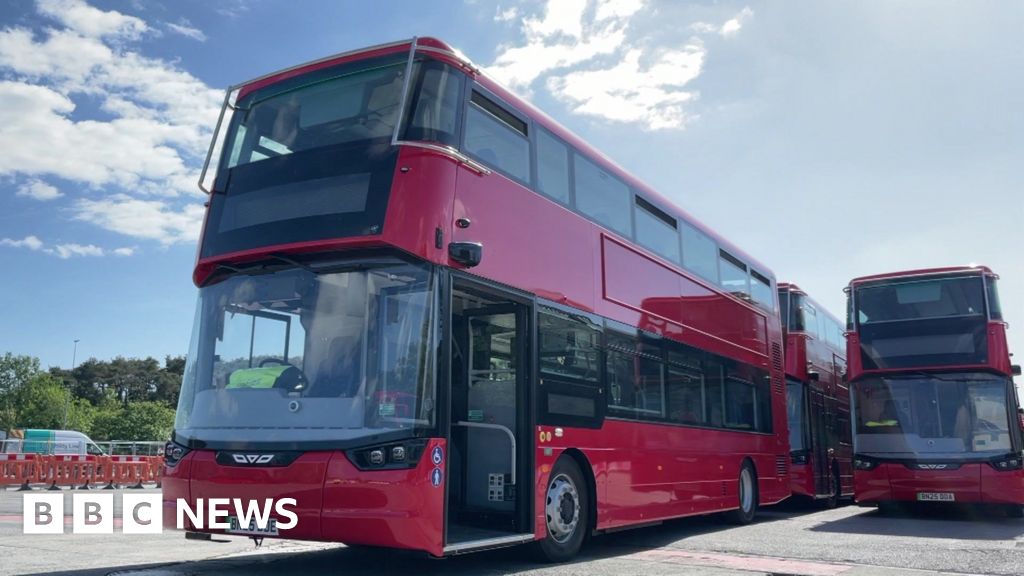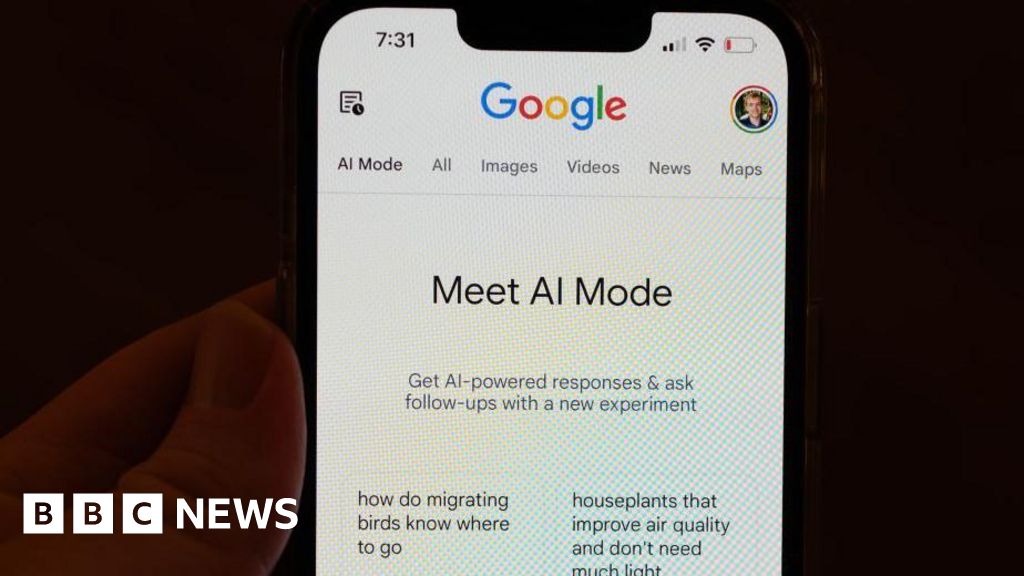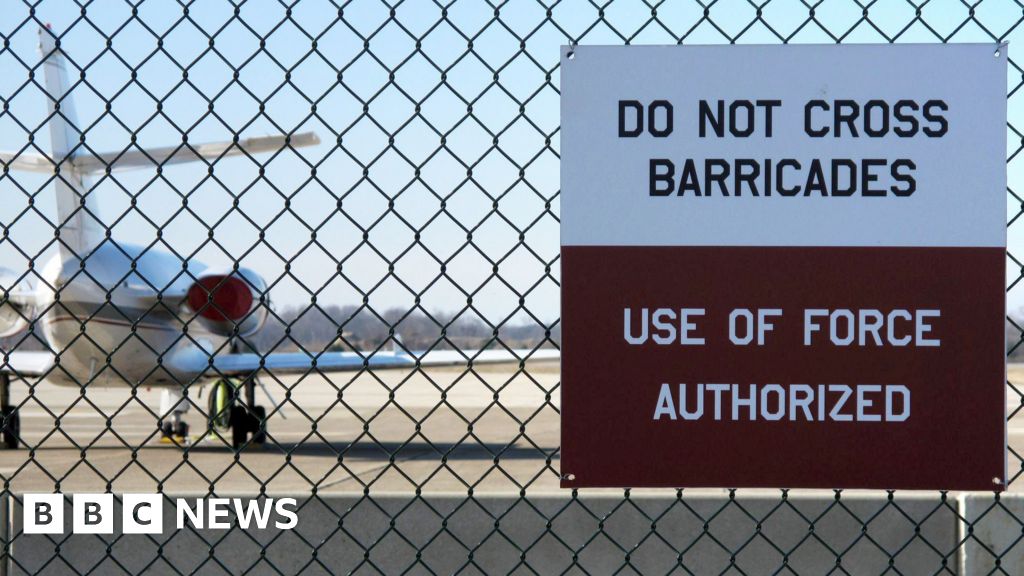- Mobility
When top executives work remotely, it becomes more difficult to drag everyone else to their desks
时间:2010-12-5 17:23:32 作者:Charts 来源:Video 查看: 评论:0内容摘要:Promises to update aPromises to update a
Beijing doesn't seem too worried about looking elsewhere for more chicken, pork and sorghum and – at the same time – it knows it is whacking the US president right in his heartland.Globally, all of this has analysts worried.

The problem is that supply chains have become so international, components in any given product could be sourced from all corners of the planet.So, when the ripples of economic distress start spreading from country to country, it could have potentially catastrophic consequences for all trade.Most concerning is that the world's two greatest economies are now at each other's throats with no indication that either is preparing to backdown.

Just take the timing of Beijing's announcement.The Chinese government revealed its promised "resolute countermeasures" to Trump's latest tariffs in a written statement from the finance ministry at 18:00 local time (10:00 GMT), on a Friday night, which is also a public holiday.

The timing could mean several things.
1. It wanted to somewhat bury the news at home, so as to not spook people too much.Over the last week, as part of a series on BBC Radio 4’s Today programme, we traced the path of migrants from Turkey to Bulgaria to the rest of Europe - the “biggest growth route” for those travelling into Europe, according to the University of Oxford’s Migration Observatory - in search of what it will really take to “smash the gangs”.
When we talk about smuggling gangs, we tend to focus on the end of the process, such as the UK's relations with France, and on the movement of people across the English Channel, but our route marks the start of the journey: it’s where migrants first enter Europe.Along the way, we spoke to migrants who shared their complicated reasons for putting their lives in the hands of people smugglers. What soon became clear was the sheer magnitude of the government’s task.
The crowded shopping bazaar in the Istanbul district of Esenyurt is popular with the thousands of Syrian refugees who live in the region. “You can see Syrian shops here,” Husam, a Syrian refugee, told us as he showed us around after Friday prayers. “Many were not here in 2015. You have falafel, shawarma - many shops for Syrian food. It was a comfortable, safe place for Syrians.” But now the mood is darkening.“In the past few years it’s not safe any more,” he explains. “There are groups of racist people who don’t like refugees. On public transportation you cannot speak comfortably in Arabic on your phone. People are attacked [for] speaking Arabic.”
- 最近更新
- 2025-07-07 06:14:32The 10-Minute Martha Stewart Tomato Recipe I've Been Making for 20 Years
- 2025-07-07 06:14:32Police say a man opened fire outside a Michigan church before staff fatally shot him
- 2025-07-07 06:14:323 hours ago An AI video ad is making a splash. Is it the future of advertising?
- 2025-07-07 06:14:32How much should you have in your 401(k)? How your balance compares to others by age
- 2025-07-07 06:14:32An AI video ad is making a splash. Is it the future of advertising?
- 2025-07-07 06:14:322-Tier Multi-Purpose Bathroom Under Sink Organizers (2-pack)
- 2025-07-07 06:14:32What separates the ultrarich from the just-plain-rich? The gigayacht
- 2025-07-07 06:14:32LA Dodgers pledge $1 million in support of immigrants amid ICE raids
- 热门排行
- 2025-07-07 06:14:32booking excursions through the cruise line
- 2025-07-07 06:14:32Mozzarella and Basil Stuffed Tomatoes
- 2025-07-07 06:14:32two-pack of rechargeable head lamps
- 2025-07-07 06:14:32How to find a trusted retirement advisor for peace of mind in your golden years
- 2025-07-07 06:14:324 Investment-Worthy Skincare Finds From Sephora
- 2025-07-07 06:14:32What separates the ultrarich from the just-plain-rich? The gigayacht.
- 2025-07-07 06:14:32wasted the limited space in my suitcase
- 2025-07-07 06:14:32Alex Isley: Tiny Desk Concert
- 友情链接
- Can women’s career success be a recipe for divorce? Newly qualified solicitors will earn as much as £140,000 a year in race to attract and keep talent Women business leaders face surge in online abuse Is that afternoon golfing really a form of corporate education? Can women’s career success be a recipe for divorce? The Monday Interview with Matthew Garrahan When top executives work remotely, it becomes more difficult to drag everyone else to their desks New York’s Gilded Age reimagined: The Fifth Avenue Hotel Chancellor aims to improve government’s relationship with high-growth companies Curiosity, experimentation and learning are crucial if women are to shape the future of work Warner Bros to cut CEO Zaslav’s pay package following shareholder rebuke HSBC considers ordering all staff back to office 3 days a week First class or business? And other dilemmas How trauma changed my career path Can I make flying more enjoyable? Working hard to look busy: why young employees are ‘task masking’ How trauma changed my career path The business of Black hair: inside a $10bn global industry Bank seeking to impose unified approach on sprawling global workforce Disrupted or displaced? How AI is shaking up jobs New York’s Gilded Age reimagined: The Fifth Avenue Hotel Three top golf courses within swinging distance of Edinburgh Innovative Lawyers Awards North America This AI is amazing and there’s only a few embarrassing, critical errors Can I make flying more enjoyable? Three top golf courses within swinging distance of Edinburgh Three top golf courses within swinging distance of Edinburgh The best business books to read this summer The sports helping executives stay at the top of their game Trump administration pushback hits US gender diversity efforts
